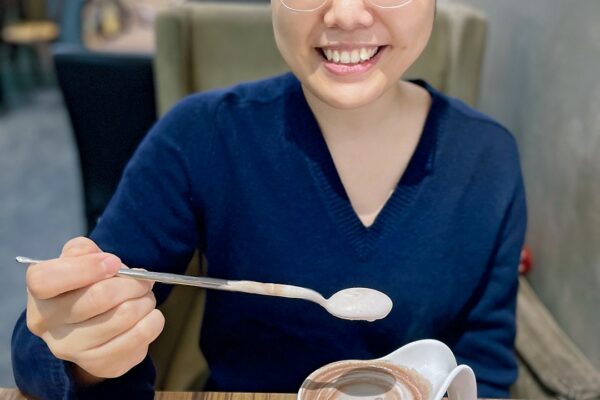By Li Qiu-yue, Tzu Chi Teachers Association
Edited and translated by Wu Hsiao-ting
Graphic by Zhong Ting-jia
Gift-giving can be a challenge, especially when it comes to parents. This article offers tips for a delightful exchange of giving and receiving gifts.

A student was stumped by what gifts to give his parents. “It’s easy to find gifts for classmates, but I’m not sure what to give my mom and dad to truly make them happy.”
This situation reminded me of what happened a month before my birthday this year. My younger son called and asked me what gift I wanted. I told him I needed a new hairdryer and asked if he could get me a pink one. On my birthday, I received a hairdryer jointly gifted by both my sons. I was overjoyed and couldn’t stop admiring it, as the color and design were both my favorites.
I faced a similar dilemma in the past as the student when selecting a birthday gift for my mother-in-law. Whenever I asked her what she wanted, she would often say, “Anything is fine.” So, for a while, I bought her gold jewelry. But then later she said she was getting older and didn’t wear accessories often. So, I switched to giving her clothes. But she then said she couldn’t wear all the clothes. Eventually, I had no choice but to opt for the hassle-free option of giving her money.
Based on my experiences, I have a few suggestions to ease the worries of gift-givers and bring joy to gift-receivers.
Intergenerational communication
During my younger days, as I headed off to college and relocated away from home, I found myself yearning for my mother’s cooking. Memories of her culinary prowess haunted me, and I would catch myself unconsciously licking my lips, yearning for her mouthwatering dishes.
To soothe this longing, I would always call my mom one week before returning to my hometown, letting her know the date I’d be coming home and the dishes I’d love to eat. Upon arrival, I’d savor the dishes I had missed, and my mother’s happiness was evident in her smile when she saw the empty plates. It was a delightful cooking experience for her and a satisfying meal for me. Every time I went home, it was a joyful reunion between my mother and me, and it eased my homesickness.
Recently, I came to the realization that the act of pre-ordering meals during my college days was a form of “intergenerational communication,” now being promoted by experts. To spare yourself the headache of not knowing what gifts to give your parents and to bring them happiness, I encourage you to utilize intergenerational communication effectively. Clearly and specifically express your thoughts to your parents, explaining your intentions. I trust that your parents will be more than willing to cooperate, leading to a delightful exchange of giving and receiving gifts.
Take myself as an example. To help our children avoid the dilemma I used to experience with my mother-in-law, once they started earning an income, both my husband and I openly and clearly expressed our most desired gifts for the year. Thanks to transparent communication, our children can fulfill our wishes without any uncertainty and spare us the disappointment of receiving unwanted gifts.
Sincerity and mindfulness are the key
That said, gifts for parents don’t always have to be bought with money; you can create heartfelt homemade cards or showcase your culinary skills by treating them to a delicious meal.
I once designed a worksheet for students to write “One Hundred Good Things About Mom [or Dad]” and personally sent this special gift to each parent a week before Mother’s or Father’s Day. When parents received this unique present, many of them were deeply moved and called me to express their gratitude, saying, “Thank you so much! This is the best gift I have ever received in my life. I will frame it as a keepsake!”
My two children also wrote a list of “One Hundred Good Things About Mom” and gave it to me. As I looked at the list, it made me laugh and cry in turns. It turned out that in my children’s eyes, besides taking care of their basic needs, I was also a mom who nagged, was decisive, and could be playful!
This gift means so much to me I still keep it in my safe, and I often take it out to reminisce about my younger self. I am deeply grateful for my children’s love and keen observations. Their list to me created beautiful and timeless memories for me.
In the end, the essence of gift-giving lies in sincerity and mindfulness. As Dharma Master Cheng Yen said, “Proficiency comes from mindfulness.” By being mindful and genuinely thoughtful, you can make people feel the depth of your care through your gifts. Inquiring about preferences and observing with care will undoubtedly lead you to find gifts that bring joy and leave a lasting impact on your recipients.



